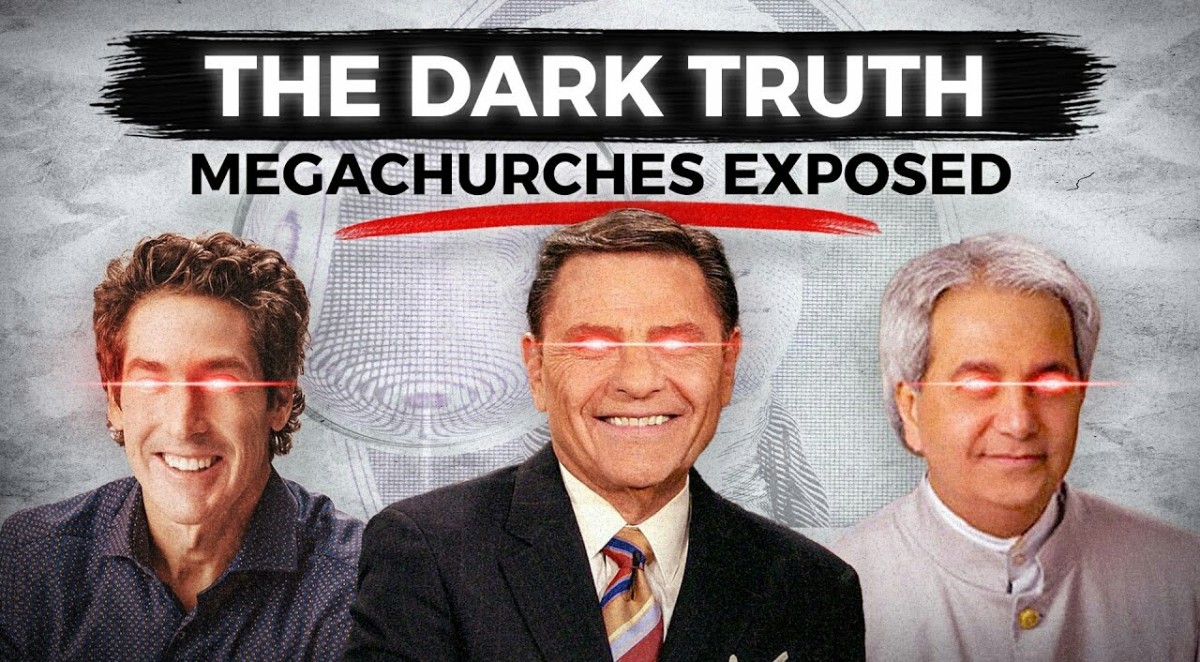The Prosperity Gospel Part 2

What's Wrong With Prosperity?
Prosperity theology, or the health and wealth gospel is becoming widespread now, not only in the United States, but in many of the impoverished Third World countries as well. People in desperate need will grasp at anything that will improve their situation. But, if that theology is giving false promises that God never made, then it is doing great damage to the true gospel of Jesus Christ, and leading many to try to gain the whole world at the cost of losing their souls.
I. Prosperity Preaching Mixes Israel with the Church
There are a number of problems with this type of preaching. For instance, they mix up verses specifically given to national Israel, which has been temporarily set aside according to Romans 9-11, and apply them to us in this Age of Grace, which started as a result of Israel's fall. An example of this is the book of Malachi, which they love to quote. It was written to Israel because, among their other sins, they were not bringing in their tithes and offerings to the temple, which were a form of tax in order to run the theocratic government of the day. The funds sustained the Levites who offered the sacrifices, it paid for the religious festivals, and was used for the poor.
By the people refusing to pay their taxes, the priests went unpaid and had to give up the ministry to begin farming. Also, the nation's religious life was hindered, and the poor and strangers suffered. In other words, the situation bares no resemblance to today when the prosperity preacher may have to give up one of his Cadillacs if a few church members don't pay.
II. Prosperity Preaching Misinterprets Verses
Another problem with the health and wellness gospel is that it takes a few verses and totally misinterprets them to go along with their theology. John 14:14 says that: "If you ask me anything in my name, I will do it." Jesus was about to die and rise again. Then he would leave His disciples and return to heaven. Jesus is comforting them, giving them the means to accomplish the task of spreading the gospel of the Kingdom by telling them that they can ask anything in His name. By saying this, it doesn't mean that a follower of Christ can tack this phrase onto the end of a prayer to get anything his greedy little heart desires. Asking something in Jesus' name is to ask according to Christ's will, for the purpose of advancing His Kingdom. It is not a selfish prayer, and it is not based upon the merits of the one praying. These are prayers in pursuit of Christ's glory alone.
III. Prosperity Preaching is Unbalanced
However, the main problem with the "name it and claim it" theology is that it goes against the clear teaching of Jesus and His apostles regarding poverty and wealth. And it goes against the balanced view of all of Scripture regarding money.
Before we go on, we must say that having money is not seen as a bad thing in the Bible. It is the love of money and putting the pursuit of money above one's pursuit of God that is wrong. Many of God's people throughout the Bible were wealthy individuals. But there is nowhere in God's Word that says that everyone that doesn't have wealth simply lacks enough faith. As a matter of fact Jesus' story about the rich man and Lazarus seems to indicate that the poor man was the one with the true faith in this case. The rich man ended up in hell. (Luke 16:19-30).
We can also see the poor widow in Luke 21:1-4 who put in two mites into the treasury. This was all that she had in the world to live on. And Jesus compared her gift to that of the rich who merely gave out of their abundance. By Jesus saying that she put in more than all the rest because she gave all, He was not saying she was poor due to a lack of faith. Rather He was indicating that though poor, she was favored by God for her faith. And He said nothing about her giving that would indicate that she ever became wealthy because of her gift.
IV. Prosperity Preaching is Against Jesus' Teaching
Some of Jesus' best teaching on the subject of wealth and prosperity is found in His Sermon on the Mount which is in Matthew 5-7. Let's hear what He had to say with His own mouth:
"Do not store up for yourselves treasures on earth, where moth and rust destroys, and where thieves break in and steal. But store up for yourselves treasures in heaven, where neither moth nor rust destroys, and where thieves do not break in or steal; for where your treasure is, there your heart will be also" (Matthew 6:19-21).
Just a few verses later, in that same sermon, Jesus tells his disciples not to worry about what they will eat, drink or wear because God will provide. This is Matthew 6:25-33 in which there are strong warnings against the accumulation of wealth and having and keeping more than what you need. It climaxes with these verses:
"But seek first His kingdom and His righteousness, and all these things will be added to you"
Our Lord is not talking about God giving the believer great riches if he seeks first His kingdom. Rather He has promised that He'll provide for the necessities of life. Jesus' concern was that people treasure God and His kingdom, over everything, including any material gain that they might accumulate. It has been said that if you want to know a person's heart then follow the money. What a person does with his wealth is a strong indicator of whether he has a heart for God or is simply self-centered.
It is interesting that Jesus confronted some of the same problems which we have today with the health and wealth gospel. In His day the Pharisees were teaching that a person could be both devoted to God and money. It went hand in hand with the common assumption that earthly riches signified divine favor. Because of this, the rich were regarded as God's favorites. The Lord confronted this teaching in Luke 16:13. He says:
"No servant can serve two masters; for either he will hate the one and love the other, or else he will be devoted to one and despise the other. You cannot serve God and wealth."
It is said then in verse 14 that the Pharisees, who were lovers of money, were listening to all of this and scoffing at Him. Money had become their idol.
Conclusion
We still have much more to say, but must save it for the next article. However, from what we have seen so far, it looks like the prosperity gospel, rather than giving God glory, makes him a vending machine to get what your faith earns you. It is self-centered rather than God-centered. And it puts the gifts above the Giver of the gifts. We need to do everything in our power to stop this idolatrous teaching that poses as biblical preaching. My prayer is that the Church of Jesus Christ will, once and for all, abandon this dangerous path it is heading down and turn back to the Lord who alone deserves our devotion.






